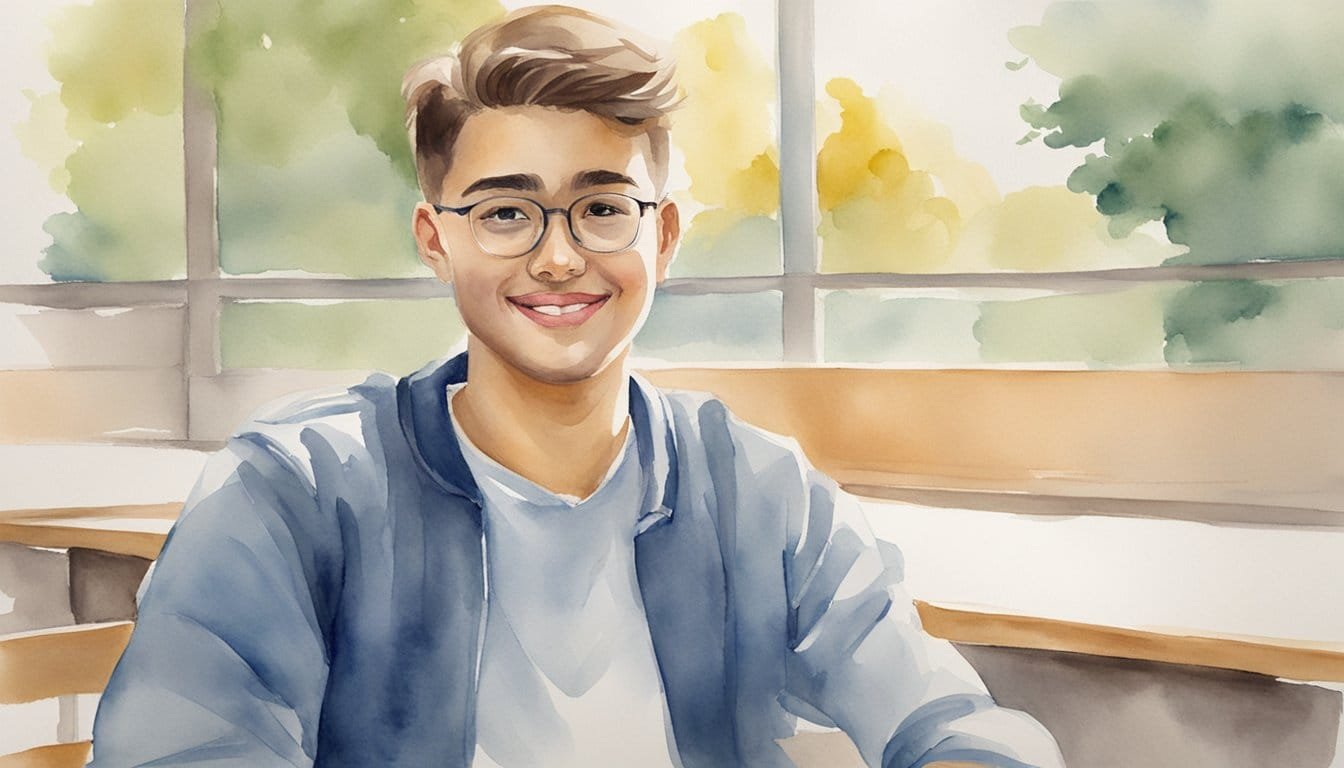Acing your college interview can be a crucial step in your college application process. It’s an opportunity to showcase your unique qualities and make a lasting impression on admissions officers. Preparing well for these interviews can significantly boost your confidence and poise.
Why is this important? Your interview performance can set you apart from other candidates with similar academic achievements. Understanding what to expect and how to present yourself can make a meaningful difference in your college admissions journey.
1) Research the School
Before your college interview, it’s important to learn as much as possible about the school. Start by visiting the college’s official website. Browse through the main sections such as academics, student life, and campus facilities. This helps you understand what the school values and offers.
Check out the programs that interest you. Knowing specific courses or professors you admire can show your genuine interest. Mentioning these in your interview can leave a positive impression.
Read recent news articles about the college. This can give you up-to-date information on current events, achievements, and changes in the school. It can also provide topics for you to discuss during the interview.
Look into the school’s culture. Find student blogs, social media pages, or forums to gain insights about day-to-day life from current students. Understanding the school’s vibe can help you decide whether it’s the right fit for you and how you can contribute to the community.
Explore the college’s mission and values. Most schools have a mission statement or a list of core values on their website. Knowing these can help you align your answers with what the school cares about.
Check out the alumni network. Successful alumni can indicate the potential opportunities and connections you might have after graduation. It’s also good to know if there are prominent alumni in a field you’re interested in.
Review the campus resources. Knowing about the libraries, research centers, and extracurricular activities available can help you discuss how you plan to utilize these resources.
By thoroughly researching the school, you can confidently answer questions and show that you are well-prepared and genuinely interested in joining their community.
2) Prepare Your Answers

When getting ready for a college interview, it’s important to prepare your answers. Think about the common questions you might face. Practice your responses to questions like, “Why do you want to attend this college?” or “What are your strengths and weaknesses?” Rehearsing answers helps you speak more confidently.
Tailor your answers to show your genuine interest in the college. Research the college’s values, programs, and mission. Mention specific courses, professors, or activities that excite you. This shows that you have done your homework and are sincerely interested in what the college offers.
Avoid using clichés in your answers. Instead of saying you’re “hardworking,” explain a situation where your hard work led to success. Give examples that highlight your unique qualities and experiences. This makes your responses stand out to the interviewer.
Think about your goals and how the college can help you achieve them. Share your career aspirations and how specific programs at the college will help you reach those goals. Be honest and sincere in your responses. Admissions officers appreciate genuine answers over ones meant to impress.
Prepare your own questions for the interviewer too. Asking thoughtful questions shows that you are genuinely considering how the college fits with your plans. It demonstrates your curiosity and helps you gain more insights into the school. Practice asking questions that reflect your interest in the college’s unique offerings.
Stay calm and practice your answers several times. The more you prepare, the more confident you will feel during the actual interview. You can use resources like PrepScholar for a list of questions and answers to practice. Being well-prepared is key to making a great impression.
3) Dress Professionally

Dressing professionally for a college interview conveys respect and seriousness. It shows that you care about the opportunity and have made an effort to prepare. First impressions matter, and your attire plays a key role.
For men, wearing a suit or dress pants with a dress shirt is recommended. A tie can add an extra touch of professionalism. Make sure your shoes are clean and polished.
For women, consider wearing a blazer with a skirt or dress pants. A conservative dress paired with professional shoes is also appropriate. Avoid flashy accessories and heavy makeup to maintain a clean look.
Regardless of gender, business casual is a safe choice for most college interviews. If you’re unsure, it’s always better to dress more formally. Make sure your clothes are well-fitted and free of wrinkles.
In virtual interviews, your attire still matters. Test your outfit on camera to ensure it appears professional. Choose a quiet place to avoid distractions.
Your grooming also speaks volumes. Keep hair neat and styled, nails clean, and makeup natural. Your goal is to present yourself as someone who takes the interview seriously.
Remember, your outfit is a part of the first impression you make. Dress as if you already belong at the college. This shows confidence and can positively impact how interviewers perceive you.
4) Arrive Early
Getting to your college interview early shows your respect for the interviewer’s time and your interest in the school. Aim to arrive about 10-15 minutes before your scheduled time.
Arriving early also allows you to settle in and get comfortable. You can use this time to review your notes or take a few deep breaths to calm your nerves.
Showing up ahead of time can help ease any unexpected delays. Whether it’s traffic or a misplaced document, this buffer time lets you handle small issues without stress.
Being early reflects well on your character. It shows that you are organized and take your commitments seriously. This can leave a positive impression on your interviewer.
Remember, being too early can be almost as bad as being late. Aim for that sweet spot of 10-15 minutes to show your punctuality without appearing anxious.
5) Practice Good Body Language

Good body language can make a big difference in your college interview.
Start with a firm handshake. It shows confidence. Maintain eye contact throughout the conversation. It keeps you connected with the interviewer and demonstrates attentiveness.
Sit up straight. Good posture signals that you are engaged and interested. Lean slightly forward to show that you are listening actively.
Avoid crossing your arms. This can appear defensive or closed off. Instead, keep your hands on your lap or gesture naturally when speaking. A warm smile can make you seem approachable and friendly.
Nodding occasionally can show understanding and agreement with what the interviewer is saying. Avoid fidgeting. It can be distracting and may give the impression of nervousness or lack of interest.
Practice these tips with someone you trust. Try a mock interview to get feedback on your body language. This can help you become more aware of your nonverbal cues.
Remember, your body language should complement what you are saying. Confidence, interest, and engagement can be conveyed just as much with your body language as with your words.
6) Ask Insightful Questions

Asking insightful questions during a college interview can set you apart from other candidates. Being prepared with thoughtful queries shows your genuine interest in the college and helps you gather important details about the institution.
Consider asking about specific academic programs. Questions about research opportunities or unique courses can demonstrate your enthusiasm for learning. For example, you could ask, “What research opportunities are available for undergraduates?”
Inquire about campus life to get a sense of the student experience. Questions such as, “What are some popular student organizations?” or “Can you share more about the campus culture?” can provide valuable insights.
Showing interest in the interviewer’s personal experiences can also make a positive impression. Ask, “What was your favorite part of attending this college?” This type of question creates a connection and can lead to a more engaging conversation.
Don’t forget to ask about support services. Knowing about resources like academic advising, career services, and mental health support is crucial. For instance, you might ask, “What career services are available for students?”
Prepare a few questions about the college’s future plans or initiatives. This shows that you are forward-thinking and interested in the institution’s growth. A good question could be, “Are there any upcoming campus developments or new programs being introduced?”
Lastly, consider asking about opportunities for student involvement in leadership or community service. Questions such as, “How can students get involved in leadership roles on campus?” highlight your eagerness to contribute to the college community.
For more tips on questions to ask during a college interview, check out this guide on college interview tips.
Understanding The Interview Format
Navigating different interview formats can significantly boost your chances of success. Recognize the subtle differences to tailor your approach effectively.
Types of College Interviews
College interviews typically come in three main formats: in-person, virtual, and alumni.
-
In-person interviews are conducted on the college campus. Dress professionally and arrive early. Face-to-face interaction helps build a personal connection with the interviewer.
-
Virtual interviews use platforms like Zoom. Ensure your technology works smoothly. Choose a quiet location with a neutral background to minimize distractions.
-
Alumni interviews often happen locally, at a coffee shop or library. Prepare similarly to in-person interviews, but expect a slightly more casual atmosphere.
Each type has unique aspects, so adapting your preparation accordingly is key.
Common Interview Questions
Common questions fall into categories such as your academic interests, career goals, and personal experiences.
You might be asked to describe your favorite class or why you chose this college. Be specific and link your answers to your goals and interests.
Behavioral questions like “Tell me about a time you overcame a challenge” require you to share personal anecdotes. Use the STAR method (Situation, Task, Action, Result) to structure your responses.
Also, expect some offbeat questions to test your creativity and problem-solving skills. Practicing these questions beforehand can help you stay calm and think on your feet.
Preparation Tips
Being well-prepared for your college interview can greatly improve your chances of success. This section provides essential strategies to help you research the college and practice your responses effectively.
Researching the College
Start by understanding the college’s history, mission, values, and campus culture. Visit the official website and read about its programs, clubs, and recent news. Knowing these details helps you tailor your answers to show your genuine interest.
Academic Programs: Look into the specific programs and majors offered. This allows you to discuss how they align with your academic goals.
Campus Life: Learn about student activities and organizations. Mentioning specific clubs or events demonstrates your eagerness to participate in campus life.
Alumni Achievements: Research notable alumni and their contributions. This shows you are aware of the network and opportunities the college provides.
To keep your information organized, jot down key points and use them to formulate relevant questions for your interviewer.
Practicing Your Responses
Practicing your responses can help you remain calm and articulate during the interview. Start by preparing answers to common questions like “Why do you want to attend this college?” or “What are your strengths and weaknesses?”
Rehearsal: Practice answering questions in front of a mirror or with a friend. This helps you become comfortable with your responses and body language.
Mock Interviews: Schedule mock interviews with a teacher or mentor. They can provide valuable feedback on your performance.
Storytelling: Use specific examples to illustrate your points. For instance, instead of saying you are hardworking, talk about a project where you went above and beyond.
Record your practice sessions to review and refine your answers. Practicing regularly ensures you present yourself confidently and naturally.
How Can a Strong College Application Improve Your Interview Success?
A strong college application provides a compelling narrative of achievements, skills, and ambitions, setting a solid foundation for interviews. When candidates stand out in college applications, they demonstrate confidence, dedication, and unique qualities, making it easier to articulate their strengths during interviews and leave a lasting impression on admission officers.
During the Interview
Success in your college interview hinges on making a positive impression and showcasing effective communication skills. These elements are key to demonstrating your suitability for the college.
Making a Positive Impression
Start with a friendly greeting and a firm handshake. Dress appropriately in business casual attire to show respect and seriousness. Maintain good posture and eye contact throughout the interview.
Be punctual. Arriving on time shows that you value the interviewer’s time. Bring a copy of your resume and any required documents.
Show enthusiasm about the college and its programs. Express why you are interested in the school specifically. Smile and stay engaged; your attitude can leave a lasting impact.
Effective Communication Skills
Listen actively to questions and respond clearly. Avoid long-winded or vague answers. Practice concise and relevant responses.
Prepare examples that highlight your strengths, achievements, and experiences. Explain why these experiences are significant to your growth and goals.
Ask insightful questions about the college and the interviewer’s experiences. This shows your genuine interest and that you’ve researched the school.
Avoid filler words like “um” and “you know,” which can make you seem unprepared. If you’re unsure of a question, it’s okay to ask for clarification or take a moment to think.
Effective communication and making a positive impression both play crucial roles in acing your college interviews.

